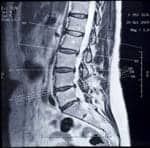
Langer-Gould adds that, “Even though pediatric MS remains rare, our study suggests that parents or caregivers of obese teenagers should pay attention to symptoms such as tingling and numbness or limb weakness, and bring them to a doctor’s attention.”
According to the study, researchers assessed 75 children and adolescents diagnosed with pediatric MS, aged 2 years to 18 years old. Researchers collected body mass index (BMI) from participants prior to the appearance of symptoms, comparing children with MS to 913,097 children who did not have the disease. Researchers note they grouped participants into weight classes of normal weight, overweight, moderate obesity, and extreme obesity. The results indicate that a total of 50.6% of children with MS were overweight or obese when compared to 36.6% of children who did not have MS.
The results also suggest that the risk of developing the disease was more than 1 ½ times higher in overweight teen females than teen females who were not overweight, nearly 1.8 times higher in moderately obese teen females when compared to teen females of normal weight, and nearly four times higher in extremely obese teen females.
Researchers add that this association was not noted in boys.
Source: American Academy of Neurology



